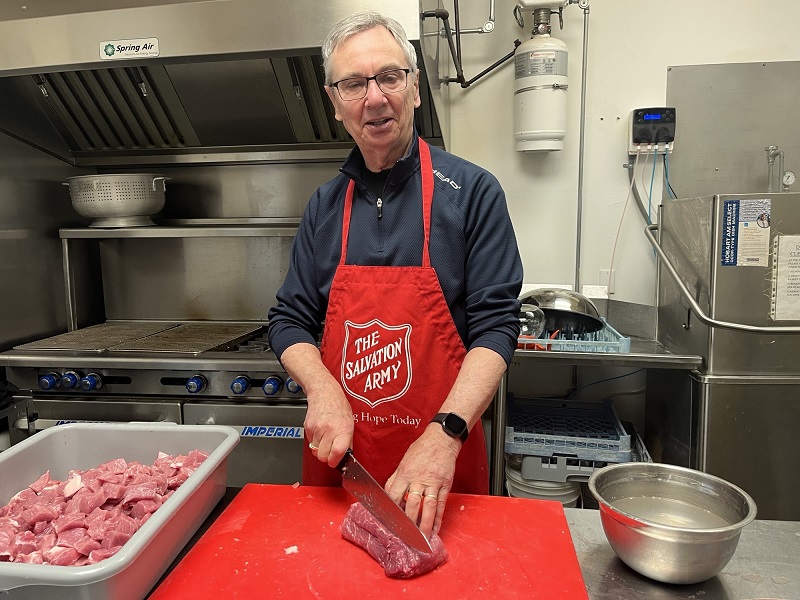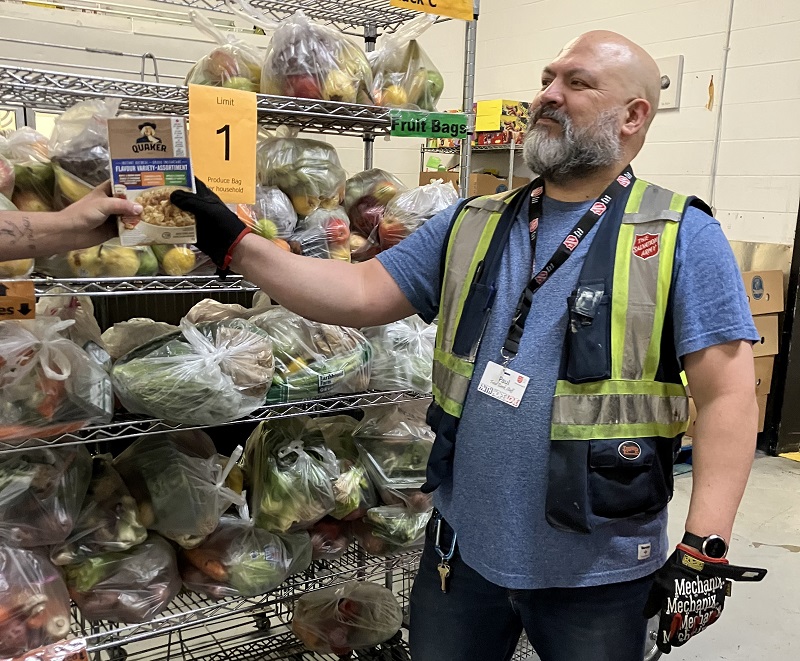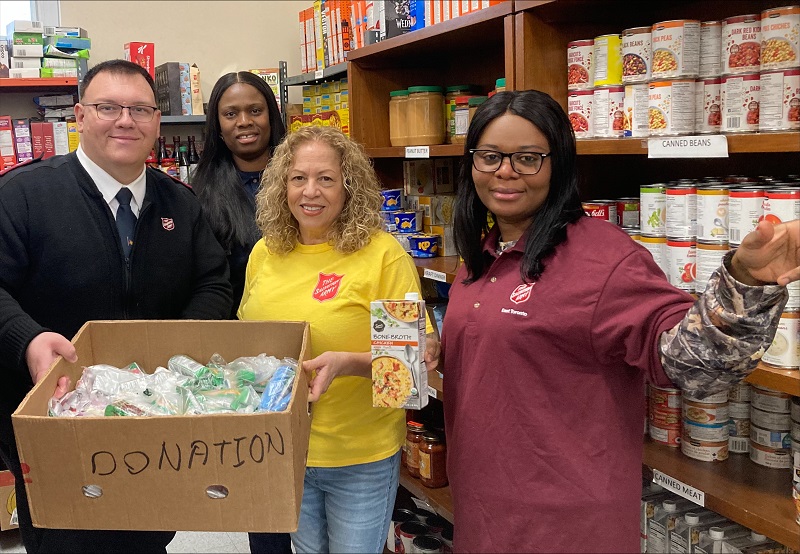Salvation Army Lunch Program Becomes More Than a Meal

For many years The Salvation Army in Prince Albert, Sask., has been running a lunch program for six days a week to support people in need. Previously, guests would receive a bagged lunch to take with them and then go about their day. However, the program has now evolved to encourage greater connection among clients, staff, and volunteers of The Salvation Army.
“The bagged lunch program is transitioning to a dining room setting,” Major Ed Dean from The Salvation Army in Prince Albert explains. “This is a non-traditional way to reach people. It may only seem like a meal, but you know it is a whole lot more than that.”
The transition to a dining room style service comes thanks to a federal grant as well as lots of help from the community, who raised over $63,000 in an event called “Plates of Hope”.
“We can now sit with them, learn who they are, and ask ‘What services can we provide?’”
Encouraging clients to enjoy a meal together allows members of The Salvation Army to get to know the people they serve.
“They will be able to come in, they’ll be able to sit down, eat on real plates, use real utensils, and rather than an 11-second transaction with them, we can now sit with them, learn who they are, and ask ‘where do you come from? And what services can we provide?’,” Major Dean adds.
A Bridge to Salvation Army Services
The dining room will serve as a gateway to refer clients of the lunch program to other services within The Salvation Army. The room shares space with a warming/cooling centre, accessible washrooms, and laundry facilities. These are basic needs that most people would take for granted, but for someone experiencing homelessness it can make a huge difference.
Staff also give out clothing items for people who may need some, and everyone is welcome to access their chapel.
“You have to meet people where they’re at. There’s an emotional, spiritual care piece to this that people don’t realize. We laugh with clients, and we tease them a bit. But you know what, that is emotional care. You are checking in with them,” Major Dean shares.
Food Insecurity Runs Rampant
Currently, Prince Albert is seeing high demand for food assistance programs. Major Dean says that locally, the rise in grocery prices has been “astronomical”. The program served more than 50,000 meals last year alone, and they are seeing a more diverse group of guests.
“With every meal, we are giving somebody hope, we are giving them connection.”
“We are seeing seniors that live down the street. We are seeing university students that are coming for lunch. We’re seeing young moms with two or three children coming and collecting lunch,” Major Dean says.
“When the program started, we used to feed 40 to 60 people during each meal. Now some days we are serving nearly 300.”
Improved Services Require Increased Need for Support
Due to the rise in demand and the rise in operational costs of the transition, Major Dean calls on the community to show their support monetarily so The Salvation Army can keep fighting for food security. He would also love to see more volunteers helping at the lunch program, as it is a great way to have a positive impact on someone’s life.
“We may be the place where people come for their daily meal. It might mean the difference between rent and being unhoused,” says Major Dean. “With every meal, we are giving somebody hope, we are giving them connection.”
By Juan Romero



